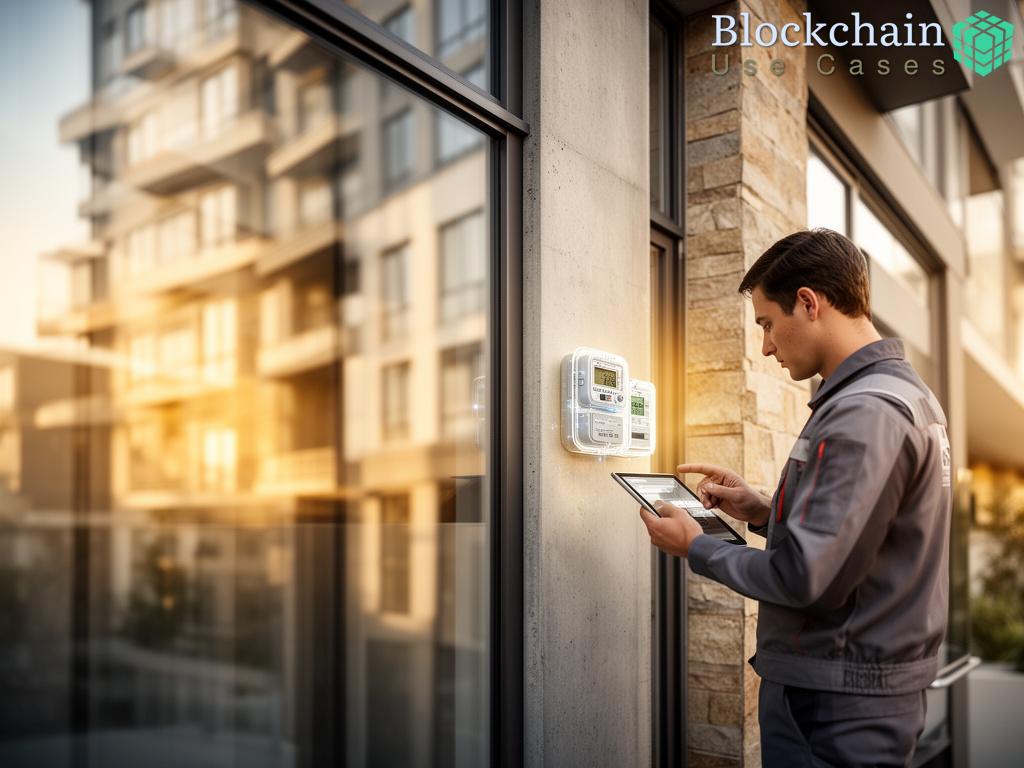Blockchain Technology in Real Estate Appraisal

The Evolution of Real Estate Appraisal
The real estate market has historically faced challenges related to transparency, inefficiency, and trustworthiness in property valuation. Traditional methods of appraisal often involve lengthy processes, subjective opinions, and significant room for error. With the advent of blockchain technology, a radical shift is emerging that promises to enhance the accuracy and reliability of real estate appraisals.
How Blockchain Transforms Appraisal Practices
Blockchain technology introduces a decentralized and immutable ledger, which can revolutionize the way real estate appraisals are conducted. By ensuring that data is secure and tamper-proof, blockchain fosters greater trust among buyers, sellers, and appraisers alike. The ability to store comprehensive property data, including historical transactions and market analyses, allows for more informed and accurate valuations.
| Benefits of Blockchain in Real Estate Appraisal | Description |
|---|---|
| Transparency | All parties involved have access to the same data, reducing misinformation. |
| Efficiency | Smart contracts can automate the appraisal process, cutting down on time and costs. |
| Security | Decentralized storage protects sensitive data against tampering and fraud. |
| Standardization | Uniform data formats can help streamline appraisals across different platforms. |
The Future of Blockchain in Real Estate Valuation
As the real estate sector continues to embrace technological innovations, blockchain is poised to play an integral role in the future landscape of property appraisal and valuation. The potential for integrating artificial intelligence and machine learning with blockchain could lead to even more sophisticated valuation models, enabling real estate professionals to make decisions based on precise, data-driven insights.
Impact of Decentralization on Valuation Accuracy
The integration of decentralized platforms in real estate appraisal is not merely a technological upgrade; it represents a fundamental transformation in how property values are determined. By leveraging blockchain’s inherent characteristics, such as transparency and immutability, decentralized systems can significantly enhance the accuracy of property valuations. This advancement addresses long-standing issues related to bias, data integrity, and inefficiencies that have plagued traditional appraisal methods.
Enhanced Data Integrity
One of the most significant impacts of decentralization on valuation accuracy is the improvement of data integrity. Unlike traditional methods where appraisals can be influenced by subjective opinions or incomplete data, decentralized platforms utilize a consensus mechanism that ensures all property-related information is verified by multiple parties. This collaborative approach not only minimizes errors but also creates a reliable data repository that reflects true market conditions.
Access to Real-Time Market Insights
Decentralized appraisal platforms provide stakeholders with real-time access to market data, enabling more accurate valuations. By aggregating data from various sources—such as recent sales, local market trends, and economic indicators—these platforms allow appraisers to make informed decisions based on comprehensive information. This immediacy contrasts sharply with traditional methods, which often rely on outdated or incomplete data, leading to potential inaccuracies in valuation.
Empowering Stakeholders through Transparency
The transparency offered by decentralized platforms is a game-changer for property valuations. All transaction histories and appraisal data are recorded on an immutable ledger, making it accessible to all parties involved. This level of openness not only fosters trust among buyers, sellers, and appraisers but also encourages accountability in the valuation process. Stakeholders can verify data independently, ensuring that valuations are based on objective criteria rather than subjective input.
In summary, the shift towards decentralized real estate appraisal platforms promises to redefine valuation accuracy in the industry. By enhancing data integrity, providing access to real-time insights, and promoting transparency, these platforms are not just improving the appraisal process; they are revolutionizing it.
Smart Contracts for Streamlined Transactions
The emergence of decentralized real estate appraisal and valuation platforms is not only changing how properties are valued but also how transactions are executed. Smart contracts, powered by blockchain technology, offer a transformative approach to creating and managing agreements in real estate. By automating processes through self-executing contracts, these digital tools ensure that transactions are conducted with unprecedented efficiency and security.
Automation and Accuracy in Transactions
At the heart of smart contracts lies their ability to automate agreements based on predefined conditions. This automation significantly reduces the likelihood of human error and mitigates the risks associated with manual processing. For instance, once a property appraisal meets the agreed-upon criteria, the smart contract automatically triggers the transfer of ownership, funds, or other relevant actions without the need for intermediaries. This streamlining of processes not only accelerates transaction times but also enhances the overall accuracy of the operations.
Cost Reduction and Transparency
Reducing transaction costs is a critical benefit of integrating smart contracts within decentralized platforms. By eliminating the need for third-party intermediaries, such as brokers or notaries, the fees associated with real estate transactions can be significantly lowered. Additionally, the transparency that blockchain provides ensures that all parties have access to the same information regarding the transaction history and contract terms, fostering trust and accountability.
Furthermore, the immutable nature of smart contracts means that once executed, the terms cannot be altered, safeguarding against disputes and enhancing the reliability of the transaction process. Stakeholders can engage with confidence, knowing that the stipulations of the contract are enforced without bias or external influence.
Key Advantages of Smart Contracts in Real Estate Transactions
The following list outlines the primary advantages of utilizing smart contracts within decentralized real estate appraisal and valuation platforms:
- Enhanced Efficiency: Automated processes reduce time wasted on manual tasks.
- Cost Savings: Lower transaction fees by removing intermediaries.
- Increased Security: Transactions are protected against fraud and tampering.
- Transparent Operations: All parties can view and verify transaction data easily.
- Immutable Agreements: Once executed, the contract terms remain unchanged.
In conclusion, the integration of smart contracts into decentralized real estate appraisal systems marks a significant advancement in transaction management. By enhancing efficiency, reducing costs, and ensuring transparency, these innovative tools are set to redefine how real estate transactions are conducted, creating a more streamlined and trustworthy marketplace for all stakeholders.
Market Dynamics of Decentralized Appraisal Platforms
The real estate sector is undergoing a seismic shift with the adoption of decentralized appraisal platforms, fundamentally altering how property valuation is conducted. As stakeholders increasingly recognize the potential of these platforms, several market dynamics are coming into play that are reshaping the landscape of real estate transactions. Understanding these dynamics is crucial for investors, appraisers, and technology developers aiming to leverage this innovative approach.
Disruption of Traditional Valuation Models
Decentralized appraisal platforms are not just enhancing existing processes; they are actively disrupting traditional valuation models that have long dominated the industry. By utilizing blockchain technology, these platforms provide a more accurate, transparent, and efficient approach to property valuation. This disruption is compelling traditional appraisers to reevaluate their methods and adopt new technologies to remain competitive.
Competitive Advantages and Market Adoption
As decentralized platforms gain traction, they offer a series of competitive advantages that are driving market adoption. The ability to harness real-time data, enhance transparency, and reduce transaction costs positions these platforms as attractive alternatives to traditional appraisal services. The following list outlines the key advantages that contribute to the growing preference for decentralized appraisal solutions:
- Real-Time Data Access: Stakeholders benefit from up-to-the-minute market data, leading to more precise valuations.
- Cost Efficiency: By minimizing intermediary involvement, transaction costs can be significantly reduced.
- Enhanced Trust: The transparency of blockchain fosters trust among users, as all parties can independently verify data.
- Increased Speed: Automated processes shorten the time needed for property transactions, enhancing overall efficiency.
- Immutable Records: The security of immutable records protects against data manipulation and fraud.
These advantages are not merely theoretical; they are driving real change in how properties are appraised and valued across various markets.
Challenges and Future Outlook
Despite the numerous benefits associated with decentralized appraisal platforms, challenges remain. Issues such as regulatory compliance, technology adoption barriers, and the need for standardization across platforms pose significant hurdles. However, as the industry evolves, these challenges are likely to be addressed through collaborative efforts among stakeholders, leading to a more cohesive and robust ecosystem.
Looking ahead, the future of decentralized real estate appraisal appears promising. With ongoing advancements in technology, coupled with increasing acceptance by the real estate community, these platforms are set to become integral components of property valuation. As the market dynamics continue to shift, stakeholders who embrace these changes will likely find themselves at the forefront of a new era in real estate appraisal.
Regulatory Challenges in Decentralized Valuation
The emergence of decentralized real estate appraisal platforms represents a revolutionary shift in property valuation, yet it is accompanied by a complex web of regulatory challenges. As these innovative platforms gain traction, understanding the regulatory landscape is essential for ensuring compliance and fostering broader acceptance among industry stakeholders. With the potential to disrupt traditional valuation methods, decentralized systems must navigate a myriad of legal frameworks to operate effectively, ensuring that they align with existing laws while promoting innovation.
Legal Frameworks and Compliance Issues
Decentralized valuation platforms often operate in a legal gray area, as the regulatory frameworks governing real estate transactions vary significantly across jurisdictions. The challenge lies in the need for these platforms to comply with local laws regarding property valuation, data privacy, and financial transactions. Many regulators are still grappling with how to categorize blockchain technology within existing legal definitions, which can lead to inconsistencies and ambiguities. As a result, stakeholders in decentralized appraisal must proactively engage with regulators, demonstrating how their platforms can enhance transparency and accuracy while adhering to legal requirements.
Consumer Protection and Liability Concerns
Another critical aspect of regulatory challenges in decentralized valuation is the issue of consumer protection. Traditional appraisal methods often feature established accountability measures, but decentralized platforms may lack clear guidelines regarding liability in the event of errors or disputes. This uncertainty can deter potential users who fear that they may not have adequate recourse if something goes wrong. To address these concerns, it is imperative for decentralized platforms to implement robust mechanisms that ensure consumer protection, such as clearly defined terms of service, dispute resolution processes, and insurance options for transactions. By prioritizing consumer trust, decentralized systems can foster greater acceptance and usage.
Future Regulatory Developments and Industry Adaptation
As decentralized real estate appraisal platforms continue to evolve, so too will the regulatory frameworks that govern them. Industry stakeholders must remain vigilant and adaptable, anticipating changes in regulations that may emerge as governments seek to better understand and control this transformative technology. Collaboration between platform developers, real estate professionals, and regulatory bodies will be crucial in shaping a regulatory environment that balances innovation with accountability. Engaging in proactive dialogue with regulators can help establish guidelines that not only protect consumers but also encourage the growth of decentralized solutions in the real estate market.





